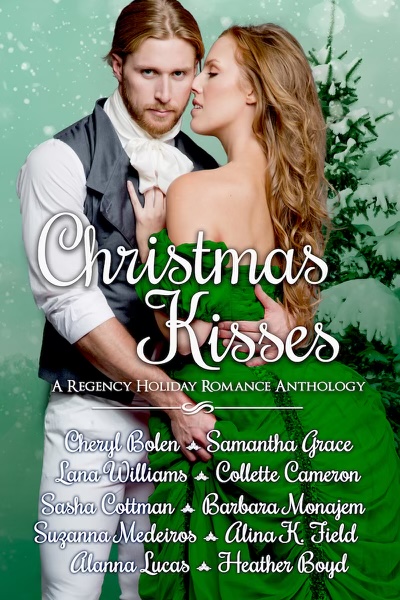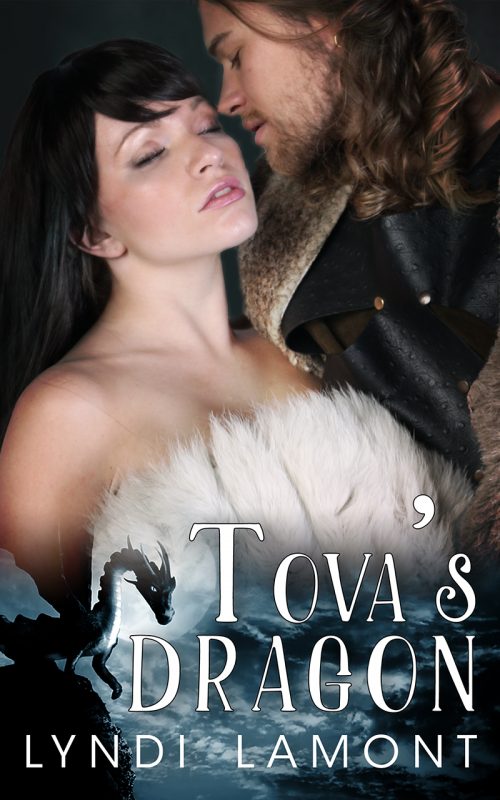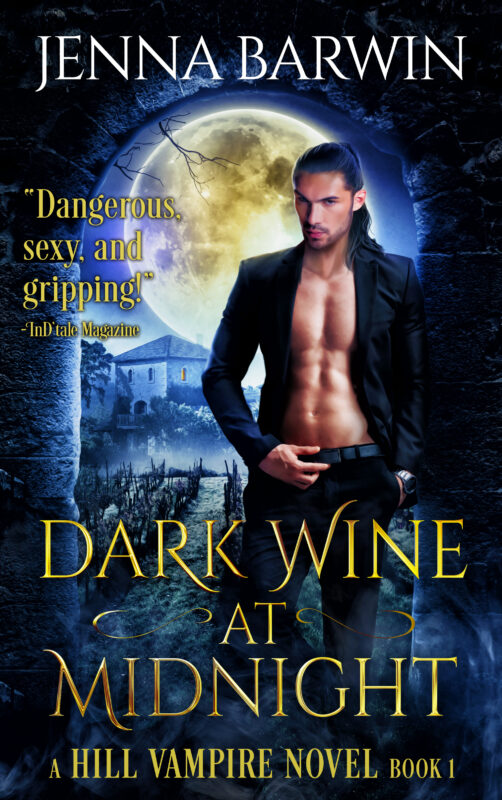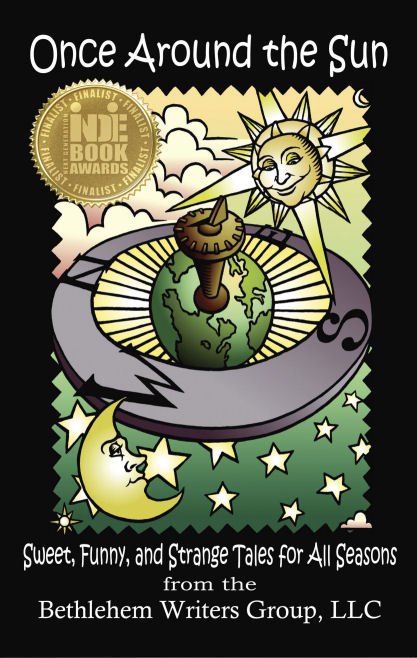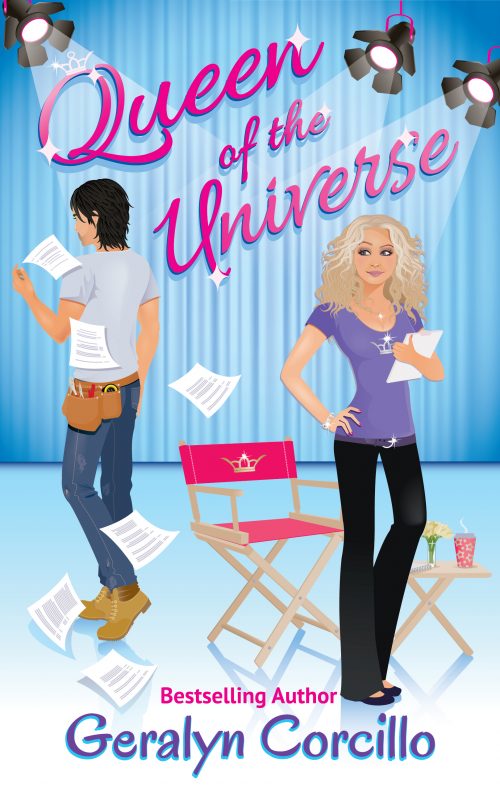Starting a New Manuscript
May 18, 2007 by A Slice of Orange in category Archives tagged as Writer's Wordby Jenny Hansen (aka Jen Crooks)
Make it look pretty. (See the link above for tips on this.) It is so much easier to format a document with a few chapters in place than it is to format an empty document where you can’t see the results. When you are done formatting and you have completed the next step, you can delete all the text (after you have completed Step 2).
Any of the following three methods will allow you to save your changes to this document – pick the way you like best. 1) Hit the Ctrl + S buttons on your keyboard (you don’t type the plus), (2) click on the little blue disc icon (third button from the left on your Formatting toolbar) or (3) go to the File menu and choose Save. Be certain that you have saved all of your writing before you delete it!
Word will automatically take you to the place on your computer where Word templates are stored. For my computer, which has Windows XP Professional, this is where my templates are stored.
Now comes the most important part, mainly because this is the step where people think they are home free so they leave the next four steps off! You are still in your template…don’t forget this. Everything you do from this point on is done to your new template, which is still open.
You must close this document before you begin to use it or all the things you type will be part of your template. You have NO idea how many times I’ve forgotten this and pounded my forehead against my desk in exasperation.
This is usually the first choice and will help you get to the template you just saved. In older versions of Windows, you will see the list of templates and the name of the one you saved will be right there. If you use Windows XP, as I do, the New Document Task Pane will come up and give you options. You want to choose “On my computer†as shown in the example below.
Confessions of a Podcast Goddess
May 17, 2007 by A Slice of Orange in category Archives tagged as Confessions of a Podcast GoddessPart 3: “Girls Just Want to Have Podcasts”
by Jina Bacarr
When podcasting burst onto the scene, they said it was a man’s world. The stats backed it up: “Wired magazine noted that at last week’s [November 2005] Portable Media Expo in Ontario, 15 percent of the 2,000 attendees were female and that users of Yahoo’s new podcasting directory were 85 percent male.” OC Register
Not anymore. Girls rule the airwaves with podcasts featuring women hosts talking about everything from caring for your animals to astronomy.
So what are you going to talk about? Here at OCC, we have published authors as well as pre-published. How about a show with a writing theme? Good start, but to gain a following you must give listeners and viewers a “hook” for your podcast. For example, romancenovel.tv interviews romance authors, including Nora Roberts, Rebecca York, and Christina Dodd, while Grammar Girl’s podcasts consist of five minutes of grammar tips each week.
I write erotic fiction so my podcasts, both audio and video, have a sexy theme. This often leads to my podcasts getting “banned” from video sites because they assume I’m promoting . This recently happened to me on Google Video re: a PSA (Public Service Announcement) podcast I did a few months ago in response to a letter “Dear Abby” received from a mother who was concerned her teen daughter was reading “trashy” romance novels.
In my video podcast, “Dear Jina”– An erotic fiction writer speaks out about what teens are reading, I talk about how romance novels reflect a positive attitude toward sex for teens. My video has received nearly 15,000 hits, but someone took offense and complained, so Google de-activated it, deciding it was “.” After a few anxious emails back and forth to Google, the problem was resolved and my video is once again “live,” but you have to be prepared for anything in podcasting.
For my audio podcasts, I want my podcasts to reflect a certain sophistication. I decided on “In the Zone with Jina Bacarr: Hot topics with a cool point of view” because it doesn’t limit what I can discuss. So far, I’ve talked about the sensual world of the geisha (I get email from listeners who tell me they’ll never look at a geisha in the same way again after hearing they don’t wear panties), strippers and the art of the tease, the history of erotic fiction from the Greeks to Fanny Hill to Spice Books from Harlequin.
I also record audio podcasts for OCC each month. I call it Romancing The O.C. I talk about our upcoming meeting, guests, local authors, book signings, contests, as well as conduct author interviews.
I always end my podcast with my sign-off: “And don’t forget, put a little romance in your life. Read a romance novel.” That’s important. Come up with a slogan that reflects your show and your personality. And don’t worry about the length of your podcast. It can be five minutes or thirty minutes, but the longer the podcast the more megabytes it will take up on your computer hard drive and your website. You can also “park it” on video sharing sites like Google and Daily Motion [we’ll talk about these sites in future blogs].
So, what’s your podcast about? Book reviews, writing tips, interviews? Do you have an interesting hobby that plays into your writing like Debbie Macomber and her love of knitting? Do you love to travel then use your experiences in your books? Are you a techie with weekly tips to help writers? The possibilities are as endless as words in a dictionary. Pick out what interests you and people will be talking about…your podcast!
 Tune in next month for Part 4 of Confessions of Podcast Goddess when I’ll be talking about shooting video on location–I’ll be in Venice, Italy speaking at La Biennale arts festival.
Tune in next month for Part 4 of Confessions of Podcast Goddess when I’ll be talking about shooting video on location–I’ll be in Venice, Italy speaking at La Biennale arts festival.
Jina Bacarr is the author of The Blonde Geisha and coming in July 2007, Naughty Paris. Jina writes erotic adventure for Spice Books. “Get Caught in the Act!”
0 0 Read moreThe Write Way (because there is no ‘right’ way)…
May 16, 2007 by A Slice of Orange in category Archives tagged as The Write Wayby Maureen Child
Writing a proposal is probably the most important thing you’re going to do in your career. Your proposal is the ‘howdy do’ of publishing. It’s your foot in the door. It’s your ‘Hey, I’m over here, read me’, way of getting an editor’s attention.
I’ve known several writers over the years who had one proposal. They sent this proposal out over and over again any time they’d hear an editor might be looking for something. They’d get feedback on this one proposal, make changes in it and then send it back out again.
Eventually, this wear and tear on a proposal shows.
And it wears on the writer, too. How can you be excited to work on a project you’ve been laboring over for five years? Nope. Once a proposal has made the rounds of everyone you can think of, put it away. I’m not saying you should never take it out for a ride around NYC again. But let it rest then go back to it with fresh eyes later.
When I was trying to sell to Silhouette Desire, I’d already written nearly forty western historicals. Didn’t mean much at Silhouette. Sure, they liked the fact that I was published, but Westerns didn’t mean I could write contemporary Desires! I was determined, though. The editor I was submitting to at the time took three weeks to turn down my first proposal.
But I was ready for her. When I got that first rejection, I had the next proposal in an envelope ready to go out. She was impressed that I’d kept working on other ideas. I asked her how many proposals I could give her at once. She said she didn’t want any more than four proposals on her desk at one time.
Within three weeks, she had three more proposals from me sitting on her desk. By doing that, I told her some very important information about me. She now knew I had lots of ideas. She knew I was determined. And she knew I didn’t give up easily.
So do your proposals. Your first three chapters and a synopsis. Make them sing. Make them shine. Send them out. And while you’re waiting…write something else.
Maureen Child is the author of more than ninety romance novels and novellas. And right now she’s working on…you guessed it. A proposal.
3 0 Read moreWriter on the Verge
May 11, 2007 by A Slice of Orange in category Writer on the Verge by Kate Carlisle tagged as Writer on the VergeThe Seven Deadly Sins, Part One: Envy
Don’t you just hate those stories about some new author who sold her book on a two-sentence pitch and she did it within, like, two days of signing with a fabulous agent, and she got some amazingly huge advance?
Ugh!
Okay, maybe you don’t hate those stories, but seriously, don’t you hate those people? Come on, tell the truth, you hate them! They suck!! They just got lucky and it should’ve been you!!
Okay, maybe you don’t hate them, exactly. Oh wait, of course you don’t hate them, because uh-oh, that very thing happened to your best friend. Oops. Which means you’re really, really happy for her, right? Of course you are! She’s your best friend and she’s worked really hard and she’s really talented and you love her and only want the very best for her! Right?
Ri-i-i-ight.
Just admit it. There’s an eensy little part of you that’s pouting and stomping your foot, right? Right? Come on, admit it!
Because it’s so not fair! You’ve been working your butt off for years and your work is really good, so why didn’t it happen to you? Come on, say it with me: Why do good things happen to everyone else but me?????
Jeez, don’t you feel whiny?
And don’t you love that I’m talking about you and not me? Well, yeah, because I would never feel that way. Ever! But if I did—which I never would, but if I did—hmm, what would I do? What would you do?
Well, lucky for you, I’ve actually thought about this—in theoretical terms only, of course. So how do you deal with that horrible envy you feel when good things happen to other people? It’s not easy but here are two suggestions.
1. Fake it. “Act as if†you’re happy for them. Slap a smile on your face and wish your lucky friend well, and try to mean it, and eventually that uncomfortable twinge of happiness will sink in and grow and stay. If it doesn’t, if you’re determined to play the victim, or the angry writer, or the bitter pain in the butt every time you’re around your more fortunate friend, then you need more help than this perky little blog entry can provide. Seek professional help.
2. Get ready for it to happen to you. Write every day. Show up. Be a good friend to other writers. Learn about the publishing business. Read. Take every opportunity to get your work in front of the right people. Take risks with your writing. And truly enjoy your friends’ successes. Hey, maybe they’ll bring you in on their next best-selling anthology. It could happen! And suddenly that person everyone else envies will be you!
Kate Carlisle is a Golden Heart Winner and American Title III finalist who writes Romance, Mystery, and Young Adult fiction.
2 0 Read morePop Culture Review: Heroes
May 9, 2007 by A Slice of Orange in category Archives tagged as Pop Cultureby Sara Black
I’ve got to be honest, I thought the first episode of Heroes was Boring. Yeah, with a capital B. However, after a few months of hearing it was Really Very Good and I should Give It A Try, I decided that maybe I’d been too quick to judge. I caught up on twenty episodes in two weeks.
Heroes could have stood to lose a majority of it’s first chapter, but things improved from then on. The basic concept is heavily drawn from super hero comic books: As explained in the opening of each episode, a bunch of ordinary seeming people turn out to have extraordinary abilities like stopping time, flying, and turning homicidal. These people may be the only ones who can save the world, unfortunately it seems, from themselves.
From a pop culture standpoint it’s interesting to see such a melding of mediums. The episodes are structured similarly to comic books, each one being a chapter in the story with a shorter arc that eventually adds up into the larger arc. There is even a graphic novel available online which promises to deepen the readers understanding.
What keeps me watching is not the comic book premise (trust me, I gave up on X-men a while ago) but the characters. We get to watch as each hero gets a piece of the puzzle but struggles to see their part in the big picture. The main arc, we learn early on, involves the destruction of a large part of New York and the deaths of thousands. Even the audience isn’t certain what part each hero will play in what may be a domino effect of disaster. The anticipation is killing me.
It could be considered torture to interest you in a series only two episodes away from the season finale, but all the episodes can be downloaded from the iTunes store or viewed online at NBCs website.
 Sara Black has a degree in Cinema/Television from USC. She watches far too much television, eats way too much sushi and is always writing a romance novel. For someone who religiously stays out of the mainstream, she knows an awful lot about Pop Culture. This is the third in a series of posts on the subject.
Sara Black has a degree in Cinema/Television from USC. She watches far too much television, eats way too much sushi and is always writing a romance novel. For someone who religiously stays out of the mainstream, she knows an awful lot about Pop Culture. This is the third in a series of posts on the subject.
Affiliate Links
A Slice of Orange is an affiliate with some of the booksellers listed on this website, including Barnes & Nobel, Books A Million, iBooks, Kobo, and Smashwords. This means A Slice of Orange may earn a small advertising fee from sales made through the links used on this website. There are reminders of these affiliate links on the pages for individual books.
Search A Slice of Orange
Find a Column
Archives
Featured Books
CHRISTMAS KISSES
Heat up the holiday with ten dreamy regency rogues!
More info →TOVA’S DRAGON
A warrior maid & a hot dragonshifter set out to save the kingdom; together they can prevail, but at what cost?
More info →DARK WINE AT MIDNIGHT
To save humanity, a reluctant spy must convince a handsome vampire to trust her, despite the dark secrets each carries, and the mutual attraction they can’t resist.
More info →ONCE AROUND THE SUN: Sweet, Funny, and Stranges Tales for All Seasons
Stories about winter, spring, summer and fall, and seasons of life, seasons of love, and even seasons of discovery.
More info →QUEEN OF THE UNIVERSE
Can a charismatic TV writer convince her brooding handyman to star in her show in time to save her career?
More info →Newsletter
Contributing Authors
Search A Slice of Orange
Find a Column
Archives
Authors in the Bookstore
- A. E. Decker
- A. J. Scudiere
- A.J. Sidransky
- Abby Collette
- Alanna Lucus
- Albert Marrin
- Alice Duncan
- Alina K. Field
- Alison Green Myers
- Andi Lawrencovna
- Andrew C Raiford
- Angela Pryce
- Aviva Vaughn
- Barbara Ankrum
- Bethlehem Writers Group, LLC
- Carol L. Wright
- Celeste Barclay
- Christina Alexandra
- Christopher D. Ochs
- Claire Davon
- Claire Naden
- Courtnee Turner Hoyle
- Courtney Annicchiarico
- D. Lieber
- Daniel V. Meier Jr.
- Debra Dixon
- Debra H. Goldstein
- Debra Holland
- Dee Ann Palmer
- Denise M. Colby
- Diane Benefiel
- Diane Sismour
- Dianna Sinovic
- DT Krippene
- E.B. Dawson
- Emilie Dallaire
- Emily Brightwell
- Emily PW Murphy
- Fae Rowen
- Faith L. Justice
- Frances Amati
- Geralyn Corcillo
- Glynnis Campbell
- Greg Jolley
- H. O. Charles
- Jaclyn Roché
- Jacqueline Diamond
- Janet Lynn and Will Zeilinger
- Jeff Baird
- Jenna Barwin
- Jenne Kern
- Jennifer D. Bokal
- Jennifer Lyon
- Jerome W. McFadden
- Jill Piscitello
- Jina Bacarr
- Jo A. Hiestand
- Jodi Bogert
- Jolina Petersheim
- Jonathan Maberry
- Joy Allyson
- Judy Duarte
- Justin Murphy
- Justine Davis
- Kat Martin
- Kidd Wadsworth
- Kitty Bucholtz
- Kristy Tate
- Larry Deibert
- Larry Hamilton
- Laura Drake
- Laurie Stevens
- Leslie Knowles
- Li-Ying Lundquist
- Linda Carroll-Bradd
- Linda Lappin
- Linda McLaughlin
- Linda O. Johnston
- Lisa Preston
- Lolo Paige
- Loran Holt
- Lyssa Kay Adams
- Madeline Ash
- Margarita Engle
- Marguerite Quantaine
- Marianne H. Donley
- Mary Castillo
- Maureen Klovers
- Megan Haskell
- Melanie Waterbury
- Melissa Chambers
- Melodie Winawer
- Meriam Wilhelm
- Mikel J. Wilson
- Mindy Neff
- Monica McCabe
- Nancy Brashear
- Neetu Malik
- Nikki Prince
- Once Upon Anthologies
- Paula Gail Benson
- Penny Reid
- Peter Barbour
- Priscilla Oliveras
- R. H. Kohno
- Rachel Hailey
- Ralph Hieb
- Ramcy Diek
- Ransom Stephens
- Rebecca Forster
- Renae Wrich
- Roxy Matthews
- Ryder Hunte Clancy
- Sally Paradysz
- Simone de Muñoz
- Sophie Barnes
- Susan Squires
- T. D. Fox
- Tara C. Allred
- Tara Lain
- Tari Lynn Jewett
- Terri Osburn
- Tracy Reed
- Vera Jane Cook
- Vicki Crum
- Writing Something Romantic
Affiliate Links
A Slice of Orange is an affiliate with some of the booksellers listed on this website, including Barnes & Nobel, Books A Million, iBooks, Kobo, and Smashwords. This means A Slice of Orange may earn a small advertising fee from sales made through the links used on this website. There are reminders of these affiliate links on the pages for individual books.






